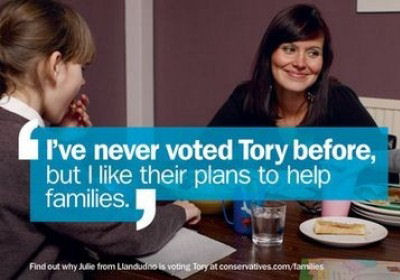Child benefit cuts ‘insulting’
As calls grow for the Government to re-think plans to axe child benefit for higher-rate tax payers, Channel 4 News speaks to one mum who describes the idea as insulting.
There is literally nothing, not a single incentive to being a mother staying at home looking after your children. Poppy Pickles
Poppy Pickles is a mother of two from south east London.
The 29-year old is a stay at home mum and has been since the birth of her son almost six years ago.
Poppy, whose husband will soon earn just over the £44,000 threshold, told Channel 4 News that proposals to scrap child benefit for higher rate taxpayers are “insulting” to full-time mothers: “There is literally nothing, not a single incentive to being a mother staying at home looking after your children. It doesn’t have to be for ever but just for those few years while they’re little.
“I was speaking to a mother at playgroup who said she was disgusted. Suddenly mothers are waking up and going, hang on, child benefit actually goes quite a long way when you’re forking out on clothes and shoes every week.”

There are concerns within the Conservative party that the policy will adversely affect its core vote.
Poppy Pickles has voted Conservative in some previous elections: “This goes against what they’ve said in the past. There’s definitely been a feeling from the Tories that Labour has pushed a lot of mothers back to work…there was definitely a feeling that the Tories were going to support choice, but at the moment it doesn’t seem like they are.”
The Institute for Fiscal Studies has said that some could regard the policy as “unfair” because it favours families with two incomes, rather than those where one parent stays at home to look after the children.
That is a sentiment Poppy agrees with: “It just shows how work is valued and care isn’t. It’s unfair, obviously unfair, glaringly so.”
Hours after George Osborne announced the plans, the Children’s Minister Tim Loughton indicated the policy could be revised.
He told Channel 4 News: “If there are ways we can look at compensating measures for those genuinely in need that will be looked at in future budgets.
“If the thresholds need to be adjusted there’s plenty of time to look at that.”